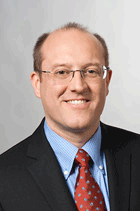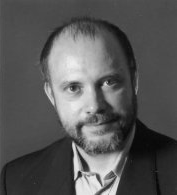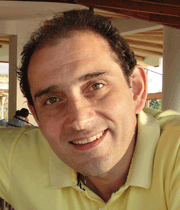GlobalSIP 2013 Symposium on:
Network Theory
[Download the PDF Call for Papers]
Understanding networks and networked behavior has emerged as one of the foremost intellectual challenges of the 21st century. It is fair to say that in the last fifty years we have been able to engineer networks that have transformed our world. Yet, while we obviously master the technology to do so, our theoretical understanding of fundamental phenomena that arise in networked systems remains limited. The purpose of this symposium is to bring together researchers from Signal Processing, Information Theory, and Controls to share their recent progress in the development of a fundamental understanding of networks and networked behavior.Submissions of at most 4 pages in two-column IEEE format are welcome on topics including:
- Wireless networking
- Distributed signal processing
- Social Networks
- Biological networks
- Network information theory
- Network coding
- Distributed storage systems
- Multi-agent systems
- In-network computations
- Networked control systems
Keynote Speakers

Alfred O. Hero III, University of Michigan, Modeling of Interaction Networks: Challenges and Emerging Solutions
Data-driven inference of communities, pathways, and connections in large interaction networks is complicated by many factors. These factors include statistical sampling variability, asynchronous data collection, and the existence of node interactions along multiple dimensions. Sampling variability causes random variations of network topology that must be taken into account in order to perform hypothesis testing on properties of the network. Asynchronous data collection makes sample averaging unreliable for estimation of node interactions. Aggregation of multi-dimensional node interactions, e.g., some obtained from relational (edge) observations and some obtained from behavioral (node) observations, requires a rational multimodality fusion model. Some recent approaches and solution strategies for addressing these and other challenges will be presented in the context of network inference from spatio-temporal social and biological data.
Alfred O. Hero III received the B.S. (summa cum laude) from Boston University (1980) and the Ph.D from Princeton University (1984), both in Electrical Engineering. Since 1984 he has been with the University of Michigan, Ann Arbor, where he is the R. Jamison and Betty Williams Professor of Engineering. His primary appointment is in the Department of Electrical Engineering and Computer Science and he also has appointments, by courtesy, in the Department of Biomedical Engineering and the Department of Statistics. In 2008 he was awarded the Digiteo Chaire d'Excellence, sponsored by Digiteo Research Park in Paris, located at the Ecole Superieure d'Electricite, Gif-sur-Yvette, France. He is a Fellow of the Institute of Electrical and Electronics Engineers (IEEE) and several of his research articles have recieved best paper awards. Alfred Hero was awarded the University of Michigan Distinguished Faculty Achievement Award (2011). He received the IEEE Signal Processing Society Meritorious Service Award (1998) and the IEEE Third Millenium Medal (2000). Alfred Hero was President of the IEEE Signal Processing Society (2006-2008) and was on the Board of Directors of the IEEE (2009-2011) where he served as Director of Division IX (Signals and Applications).
Alfred Hero's recent research interests are in statistical signal processing, machine learning and the analysis of high dimensional spatio-temporal data. Of particular interest are applications to networks, including social networks, multi-modal sensing and tracking, database indexing and retrieval, imaging, and genomic signal processing.

Gerhard Kramer, Technische Universität München, Multi-Terminal Information Theory for Channels with Block Fading and Fast Feedback
The availability of fast feedback enables fast power, rate, and beam control that increases channel capacity. We develop an information-theoretic framework for multi-user channels with block fading, delay, and feedback by describing a class of models we call "networks with in-block memory (iBM)". Particular attention will be paid to Gaussian models and relaying.
Gerhard Kramer is Alexander von Humboldt Professor and Head of the Institute for Communications Engineering at the Technische Universität München (TUM). He received the B.Sc. and M.Sc. degrees in electrical engineering from the University of Manitoba, Winnipeg, MB, Canada in 1991 and 1992, respectively, and the Dr. sc. techn. (Doktor der technischen Wissenschaften) degree from the ETH Zürich, Switzerland, in 1998. From 1998 to 2000, he was with Endora Tech AG, Basel, Switzerland, as a communications engineering consultant. From 2000 to 2008 he was with the Math Center, Bell Labs, Alcatel-Lucent, Murray Hill, NJ, as a Member of Technical Staff. He joined the University of Southern California (USC), Los Angeles, CA, as a Professor of Electrical Engineering in 2009. He joined TUM in 2010.

François Baccelli, University of Texas at Austin, Adaptive Spatial Aloha, Fairness and Stochastic Geometry
This work aims at combining adaptive protocol design, utility maximization and stochastic geometry. We focus on a spatial adaptation of Aloha within the framework of ad hoc networks. We consider quasi-static networks in which mobiles learn the local topology and incorporate this information to adapt their medium access probability (MAP) selection to their local environment. We consider the cases where nodes cooperate in a distributed way to maximize the global throughput or to achieve proportional fair medium access. We show that nodes can compute their optimal MAPs as solutions to certain fixed point equations. The main performance analysis result of the paper is that this type of distributed adaptation can be analyzed using stochastic geometry. In this case, we show that, when the nodes form a homogeneous Poisson point process in the Euclidean plane, the distribution of the optimal MAP can be obtained from that of a certain shot noise process w.r.t. the node Poisson point process and that the mean utility can also be derived from this distribution.
François Baccelli is a specialist in stochastic network theory. His research directions are at the interface of Applied Mathematics, Probability, Stochastic Geometry, Communications and Information Theory. He is co-author of research monographs on point processes, max plus algebras, queuing networks and stochastic geometry. His impact beyond the university can be measured by current and past projects with Alcatel, France-Telecom, AT&T Bell Laboratories, Intel, Sprint and Qualcomm. He received his doctorate from Paris University in 1983. He currently leads the research group on network theory in INRIA-Paris and holds an academic appointment in Computer Science at Ecole Normale Supérieure in Paris. He was Professor of Applied Mathematics at Ecole Polytechnique (1991-2003). He has held visiting positions at the Universities of Maryland, California-Berkeley and Cambridge, at the Mathematics Group of Bell Laboratories, and at Stanford, Eindhoven and Heriot-Watt Universities. He was elected as a member of the French Academy of Sciences in 2005.

Nicholas D. Sidiropoulos, University of Minnesota - Minneapolis, Joint Backpressure Power Control and Interference Cancellation for Wireless Multi-hop Networks
Back-pressure network control is a core element of modern multi-hop networking research, because it can support maximum stable end-to-end throughput. For wireline networks, back-pressure can be implemented locally, in a distributed fashion, and is relatively lightweight in terms of system resources. The situation is different for wireless networks, due to interference. In this talk, we will begin by reviewing the basics of back-pressure network operations, with emphasis on power control and interference cancellation issues. The starting point is that interference cancellation can be judiciously employed together with power control to further enhance network throughput. Effective cancellation requires that the interfering signal can be reliably decoded, implying that power control and interference cancellation are tightly coupled. This leads to a joint Back-Pressure Power Control and Interference Cancellation (BPPC-IC) problem formulation, with the pragmatic constraint that each receiver can cancel at most one interfering signal. This problem is shown to be NP-hard, and approximate solutions are proposed. Simulation results demonstrate that joint optimization of power control and interference cancellation pays off, enabling considerably higher end-to-end network throughput, and lower average delay due to reduced backlogs.
Nicholas D. Sidiropoulos (Fellow, IEEE) received the Diploma in Electrical Engineering from the Aristotelian University of Thessaloniki, Greece, and M.S. and Ph.D. degrees in Electrical Engineering from the University of Maryland - College Park, in 1988, 1990 and 1992, respectively. He is currently a Professor in the Department of Electrical and Computer Engineering at the University of Minnesota - Minneapolis. His research interests are in signal processing for communications, convex optimization, cross-layer resource allocation for wireless networks, and multiway analysis - i.e., linear algebra for data arrays indexed by three or more variables. His current research focuses primarily on signal and tensor analytics, with applications in cognitive radio, big data, and preference measurement. He received the NSF/CAREER award in 1998, and the IEEE Signal Processing Society (SPS) Best Paper Award in 2001, 2007, and 2011. He served as IEEE SPS Distinguished Lecturer (2008-2009), and as Chair of the IEEE Signal Processing for Communications and Networking Technical Committee (2007-2008). He received the 2010 IEEE Signal Processing Society Meritorious Service Award, and the 2013 Distinguished Alumni Award from the Department of Electrical and Computer Engineering of the University of Maryland, College Park.
Paper Submission
Submit papers of at most 4 pages in two-column IEEE format through the GlobalSIP website at http://www.ieeeglobalsip.org/Papers.asp. All papers (contributed and invited) will be presented as posters.
Important Dates
| Paper Submission Deadline | June 15, 2013 |
| Review Results Announce | July 30, 2013 |
| Camera-Ready Papers Due | September 7, 2013 |
Organizing Committee
Technical Program Committee
Ioannis Schizas
Usman Khan
Robert Cui
Soumya Kar
Elza Erkip
Osvaldo Simeone
Jasper Goseling
Ali Tajer
Bobak Nazer
Sandip Roy
Mehran Mesbahi
Michael Zavlanos
Shreyas Sundaram
Sean Warnick